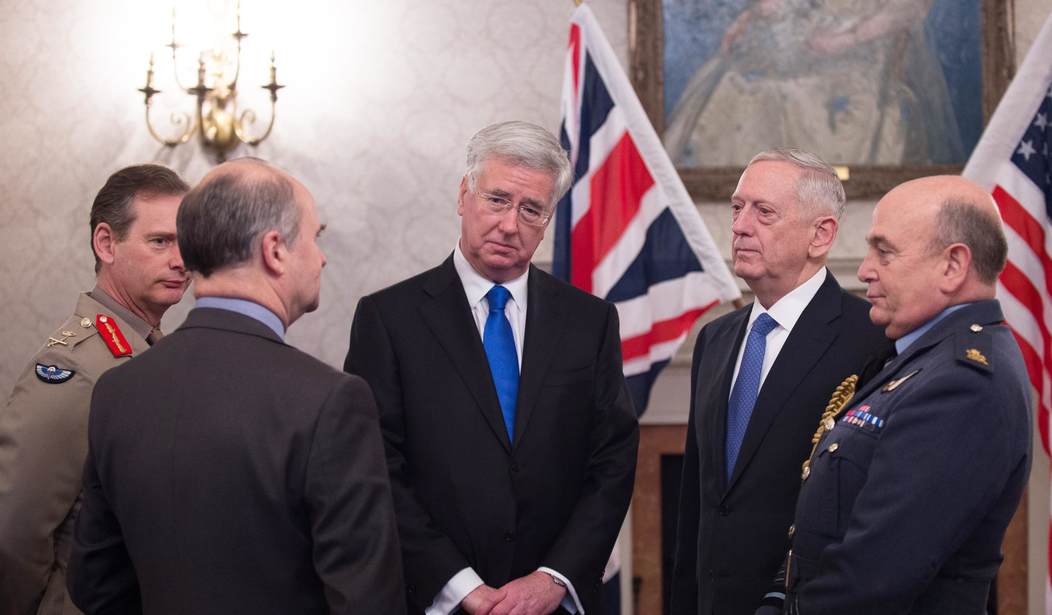Asked in London today about his 2012 comments that the greatest threat to the United States was “Iran, Iran, Iran,” Defense Secretary James Mattis singled out North Korea as a key threat that has “got to be stopped.”
“At the time when I spoke about Iran, I was commander of U.S. Central Command and that was the primary exporter of terrorism, frankly. It was the primary state sponsor of terrorism and it continues that kind of behavior today,” Mattis said at a press conference with his British counterpart, Defense Minister Michael Fallon.
“But in the larger scheme of things, obviously, in a global situation that’s dynamic, you’ve highlighted appropriately I think the North Korean threat. This is a threat of both rhetoric and growing capability, and we will be working with the international community to address this,” Mattis continued. “We are doing so right now. We’re working through the United Nations, we’re working with our allies and we are working diplomatically, including with those that we might be able to enlist in this effort to get North Korea under control.”
“But right now, it appears to be going in a very — a very reckless manner… and that’s got to be stopped.”
Fallon said that post-Brexit “it is in both our interests to bolster this partnership” between Britain and the United States “when our security is more fragile than at any time since the end of the Cold War.”
“Our two nations are providing reassurance to our Eastern European allies in the wake of Russian aggression. We are leading NATO’s enhanced forward presence. By next week, Britain will have 800 troops in Estonia and 150 personnel in a reconnaissance squadron serving alongside U.S. forces in Poland,” the defense minister added.
“In May, we will send four RAF Typhoons to Romania as part of NATO’s mission to protect the Black Sea skies. This is part of the biggest deployment in Eastern Europe since the end of the Cold War.”
Mattis thanked the Brits for “being with us to confront our foes — if necessary, we will follow them to the ends of the Earth to stop the mayhem.”
He vowed “we are going to maintain Article V as absolute bedrock of the NATO alliance,” adding “we will, as you see with the European Reassurance Initiative, act according if Russia chooses to be a strategic competitor.”
Fallon said they’re focused on reassuring “allies’ eastern flank, and to deter the kind of Russian aggression that we’ve seen recently: military buildup, use of hybrid techniques, and indeed, interference in — through cyber and other techniques.”
“We need to stand up that presence for as long as needed,” he added.
Mattis said the U.S. is still looking to engage with Russia “on a political or diplomatic level.”
“Right now, Russia is choosing to be a strategic competitor and we’re finding that we can only have very modest expectations at this point of areas that we can cooperate with Russia, contrary to how we were just 10 years ago, five years ago,” he said. “It’s no longer a cooperative engagement with them. Right now, it’s when we’re going to have carve out diplomatically some kind of maneuver room here, assuming Russia can change its behavior and act in accordance with international norms and international law.”









Join the conversation as a VIP Member